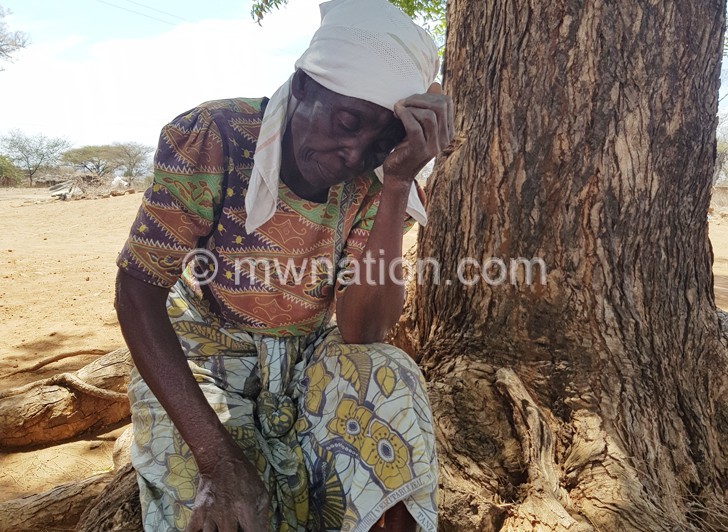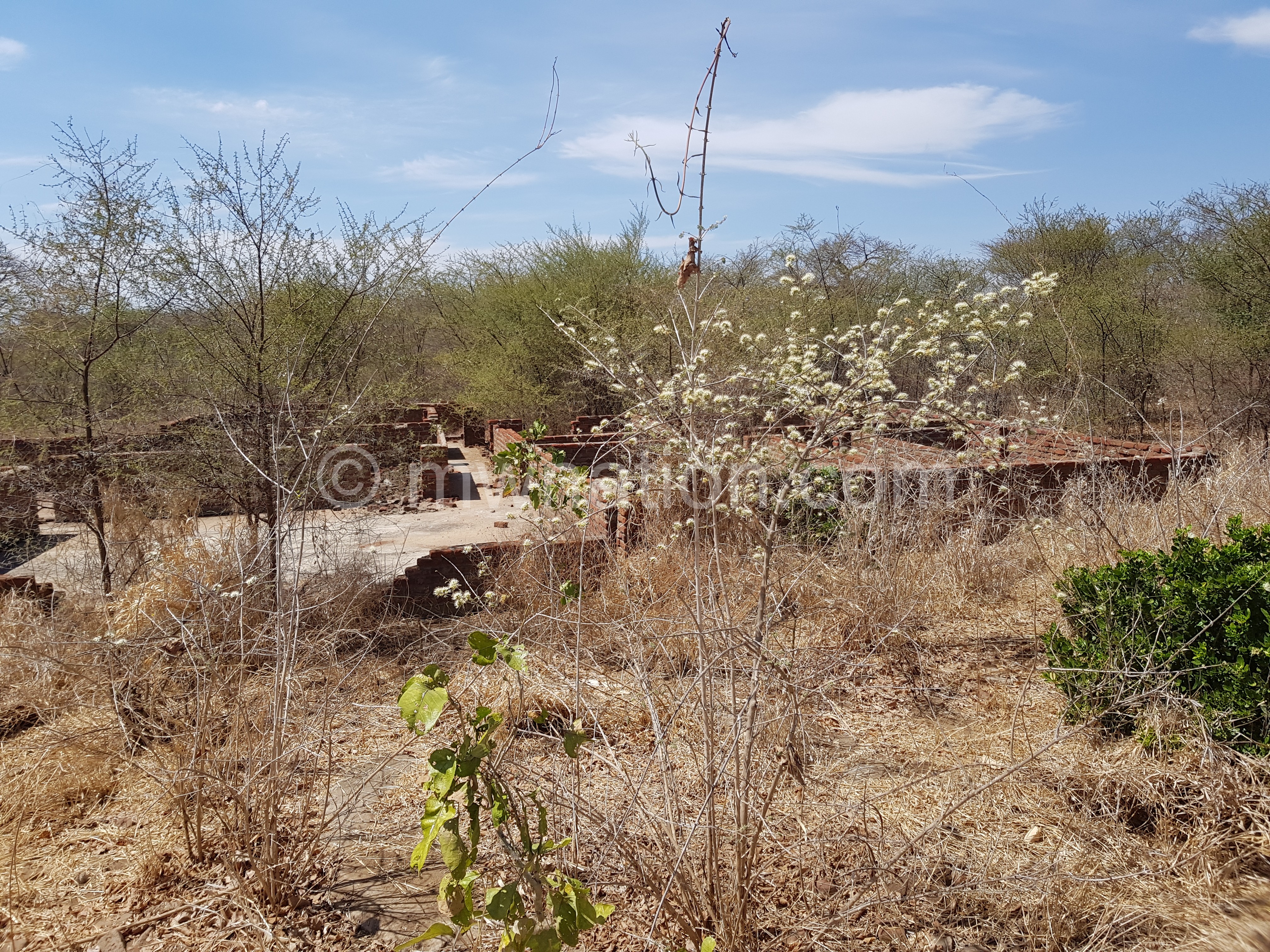Thrown out
Politicians and government officials in councils have conspired against the poor they are supposed to serve, working in cohort to kick them out of over K30 billion development projects.
Nation on Sunday investigations reveal how politicians and council officials have ignored communities’ prioritised projects—as documented in district development plans (DDPs) and their operationalising annual investment plans (AIPs)—in favour of unplanned initiatives that further political interests, but do little for the poor.

Our probe—which focused on Local Development Fund (LDF), Constituency Development Fund (CDF) and District Development (DDF)—involved review of various reports and interviews with development players at various levels nationwide.
We noted the trend in Phalombe, Mulanje, Chiradzulu, Neno, Dowa, Lilongwe, Phalombe and Karonga where our investigative team travelled to assess resource utilisation and adherence to operational guidelines of the three funds.
In Phalombe, a Public Expenditure Tracking (PET) report for CDF, DDF, and LDF covering the 2016/17 financial, for example, shows just how far politicians and councils can go to disefranchise the poor.
The Phalombe report found, for instance, that when the council received a K116 million allocation for DDF; a meeting involving members of Parliament (MPs), ward councillors, chiefs and the council secretariat ignored the district’s DDP and allocated funding to new projects from individual manifestos, instead of those in the council’s blueprint, which covers the period between 2013 and 2018.
“The plans that were allocated for DDF projects indicated that T/A Jenala would benefit the highest. This was because of the Chitekesa Rural Growth Centre in the area. However, during implementation none of the projects in T/A Jenala were implemented.

“This was due to political influence, as members of the full council interviewed indicated that they unanimously shifted the projects to other constituencies because they did not want Phalombe North Constituency to appear to have benefitted more than the rest of the constituencies,” explained the report.
The report—collaboratively done by Catholic Commission for Justice and Peace (CCJP) of Blantyre Archdiocese and the Development Communication Trust (DCT), with support from Oxfam under the Tilitonse Fund—adds that priorities in the annual investment plan for the financial year were not achieved because planned projects were ignored in favour of political initiatives that communities never prioritised.

But chairperson for CDF in Phalombe South constituency John Namoyo said most of the developments in the area were initiated by the MP Mary Mpanga after consulting the communities. Namoyo is a Democratic Progressive Party (DPP) cadre.
But the evidence of community marginalisation in project identification and implementation is piling up.
A broader study on budgetary allocations and local revenues that researchers Andrew Mpesi, Roy Hauya and Kalako Mondiwa carried out for DanChurchAid in seven selected district councils nationwide also found ‘little to no involvement of communities and councillors in the selection of projects, development of budgets and implementation of LDF projects’.

The study covered Chitipa, Karonga, Dowa, Lilongwe, Mwanza, Neno and Chikwawa districts.
Two other public expenditure tracking reports we have seen for Dowa and Karonga show a similar disregard of projects that communities identified through their village development committees (VDCs), with technical support from community development assistants.
“Most CDF projects in Dowa are being implemented on the ground with very minimal community participation. MPs do not attend ADC meetings. As a result, the MPs decide on projects on their own,” says a PET report on Dowa.
It adds: “MPs continue to use political party structures in implementing CDF projects side-lining ADCs [Area Development Committees].”
One MP, when queried on the choice of party structures over official decentralised system, said “an MP cannot sideline those people who helped them during the campaign period and use the ADC”, according to the report.
The Karonga PET report corroborates that district councils are implementing the projects, especially DDF, directly without community involvement.
“It is for this reason that communities are in the dark regarding funding and project implementation modalities,” says the Karonga report.
Findings of another national PET exercise also note that most ADCs failed to assess whether the projects had been implemented according to plan due to lack of access to information and participation.
“[There is] lack of citizen participation for identification of projects as most MPs do not attend ADC meetings. As a result, they decide on projects on their own. In some instances, councillors sign blank project application forms. This was the case in Neno,” notes the report.
Shadreck Malola, chairperson of Milonde ADC in Traditional Authority (T/A) Mabuka in Mulanje, said since assuming the chair of the ADC, no MP or councillor has ever come to him to discuss the area’s development needs.
Milonde ADC covers the whole of Mulanje South Constituency, part of Mulanje South East and part of Mulanje Bale constituencies in Mulanje district, and has 22 villages.
“We have been writing all the three MPs, councillors and even the DC to allow us to be part of those deciding development activities for the people as it is supposed to be, but we have not been answered,” he said.
Group village head Bwanali of T/A Mabuka said the development projects that his village gets are not necessarily what his people want.
“We need water in this village, but they gave us a bridge. There is no sense of ownership of these development activities because these are not what people want,” he said.
In Dowa, communities, angry that politicians and council officials are ignoring their priority needs, are fighting back.
Recently, vendors at Dowa Boma market boycotted payment of market fees for close to a month in trying to force authorities to listen to their needs.
Gideon Banda, a member of the market committee, said the communities are further upset that even after ignoring their chosen project of a stadium, the council is failing to explain how it has spent millions on the Boma Lodge project.
“We told them we wanted a stadium, they decided to construct a lodge. They have not constructed a lodge, they have renovated an old building by painting it and now they are claiming millions of cash to have been spent. We are not kids, we know they are making up the figures and we won’t allow them to abuse our money anymore,” Banda said in an interview.
Social analyst Andrew Mpesi said the country needs councillors and community leadership capable of providing oversight over public resources.
MP for Mulanje South Bon Kalindo said the challenge was that CDF money was not enough to spar development in the communities.
“A lot of projects are being abandoned because the money is not enough. I am struggling to finish the police unit at Chitakale; I am supposed to construct a market. Sometimes we are using our own ways to find resources for the projects,” he said.
In Neno village headman (VH) Jonathan complained about shoddy job the MP of the area, Mary Khembo, did on Chifunga Bridge where vehicles prefer going through the river because the bridge was poorly done, hence a threat to users.
“This only shows how distanced the MP is to her people. The bridge is not benefiting anyone now. There was an individual who has a farm across the bridge who offered to construct a proper bridge but Khembo blocked the person and rushed to build that bridge which nobody is using now,” she VH Jonathan.
She also accused Khembo of abandoning a police unit project started by her predecessor, Reen Kachere. However it transpired that the police unit project was abandoned after consuming both CDF and DDF funds.
Efforts to verify the claims with Khembo proved futile.
Neno district building supervisor Dominic Dzinkambani said the project was abandoned because it was discovered that the way it was designed it could have been costly.
“Police, district council and community leaders advised the then MP not to increase the size of the police unit, but then the MP she challenged us. The project is at window level and already three years have elapsed.
PET studies show that one of the chief reasons for project abandonment due to insufficient funds is that resources are spread too thinly because MPs want to show that they are carrying out a lot of projects they promised during the campaign.
Kalindo said the usage of money to promote politically-initiated projects has created lifts between MPs and councillors, thereby affecting the development agenda.
The central government, which transfers the money to councils, is glued to what is on paper and appears not to have a realistic grasp of what is happening on the ground.
Treasury spokesperson Davis Saddo said government works through the National Local Government Finance Committee (NLGFC), which is a constitutional body set up to monitor that resources disbursed to councils are used for the intended purpose.
Saddo said: “The NLGFC has put in place systems of accounting and auditing to ensure that there are internal controls and they make follow-ups on all finance related matters in the councils. With regards to projects, the Decentralisation Policy framework has structures in place which are used in ensuring that there’s local participation in development work through involvement in project identification and implementation.
“Through these structures namely, village development committees (VDCs) and area development committees (ADCs), government takes the projects to the local people who identify the needs and get actively involved. At the administration level at the council, there is a full council which deliberates the projects with the guidance of council management/secretariat,” he said.
He, however, could not explain whether government has conducted any research on how much of the system he was outlining actually works in reality.n





